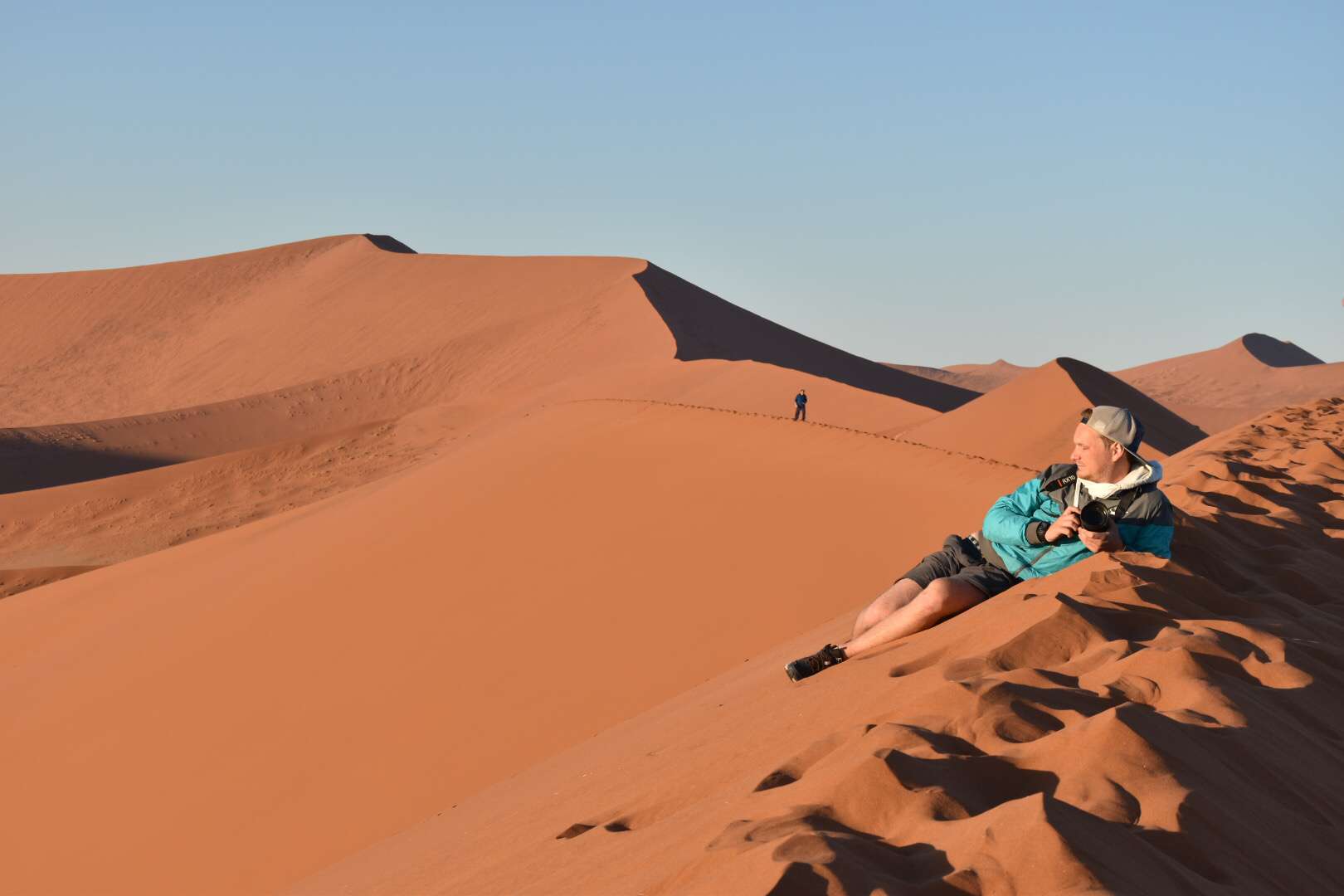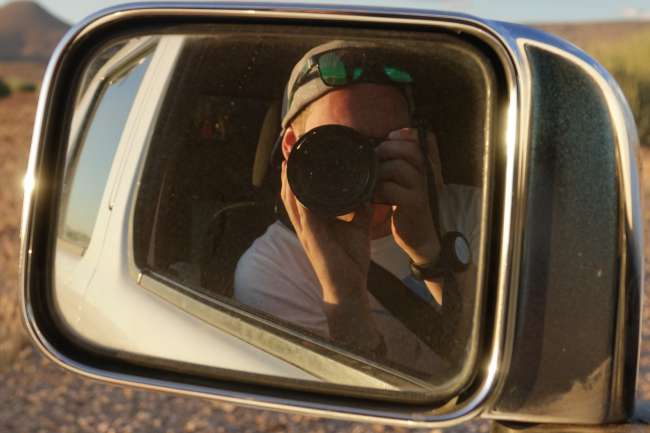Day 66 Traveling with the TGV from Madagascar
ຈັດພີມມາ: 17.06.2017
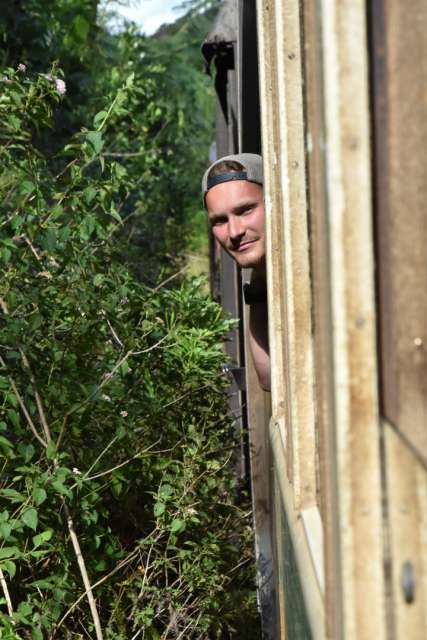
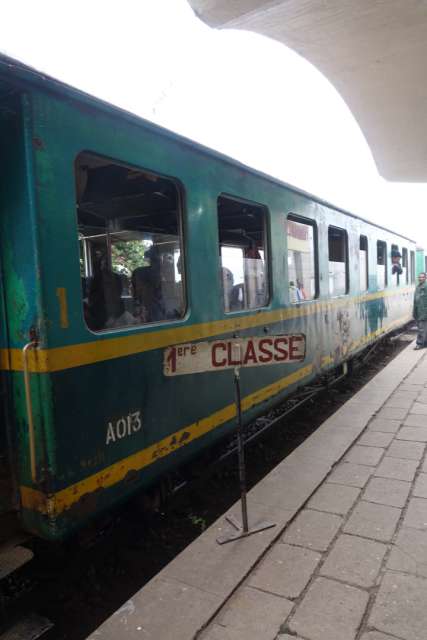
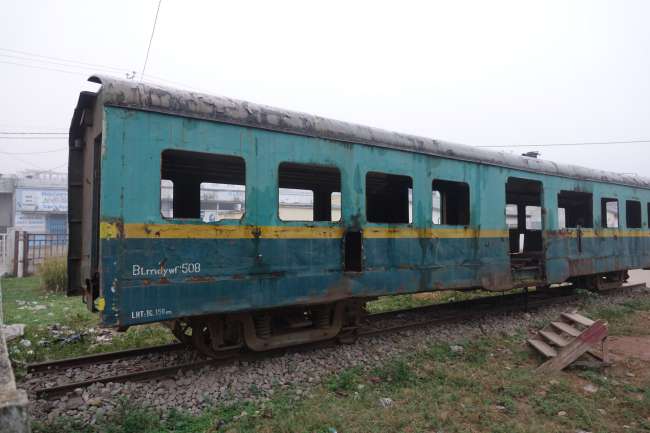
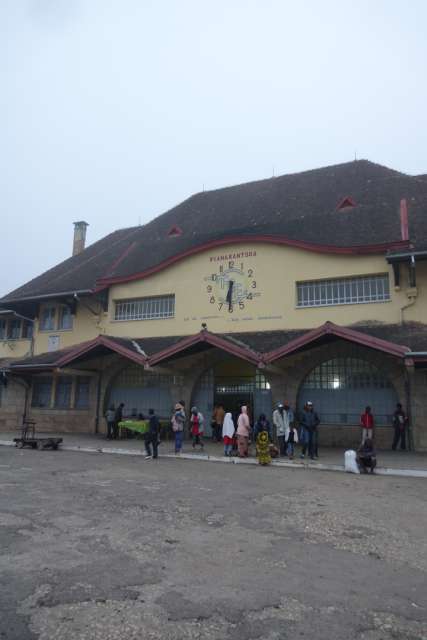
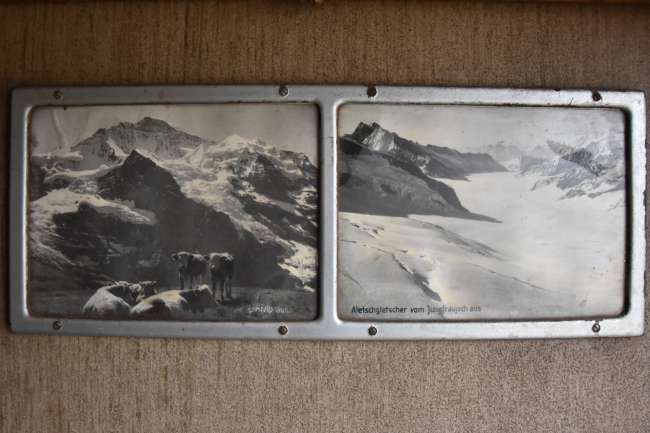
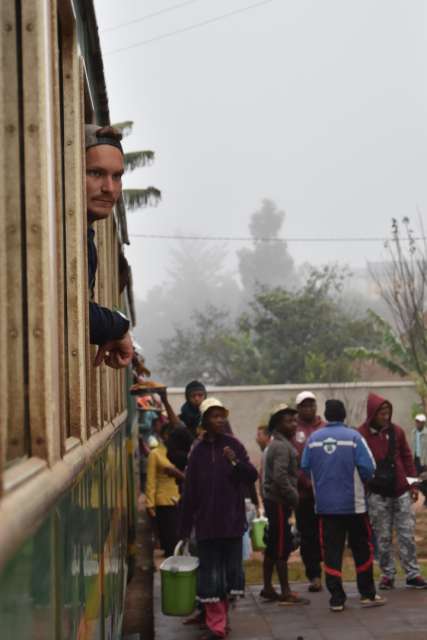
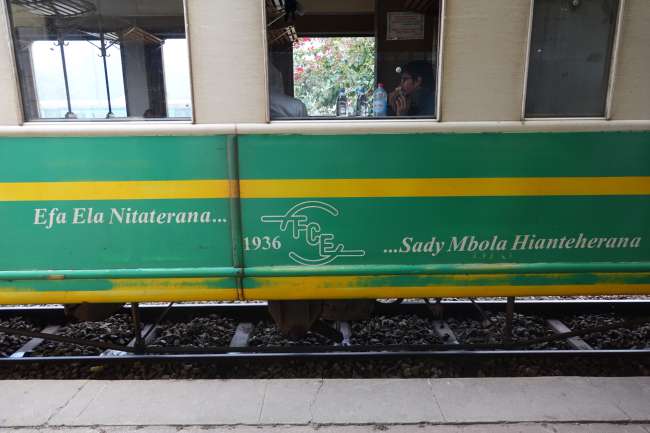
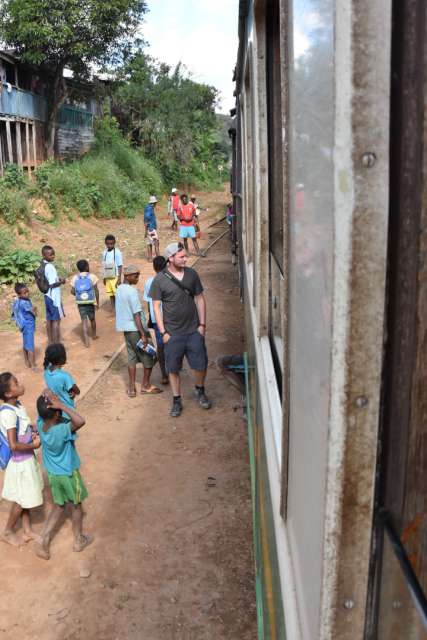
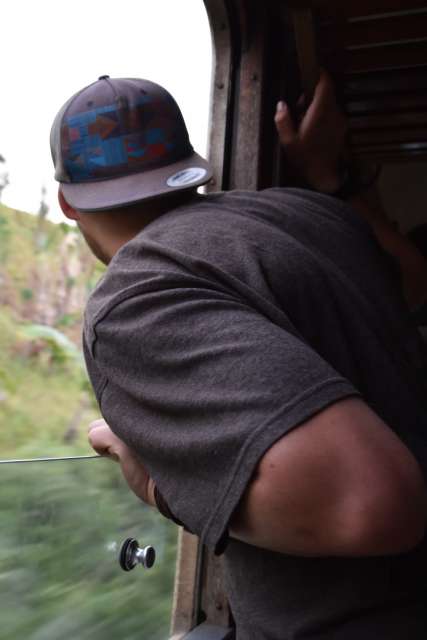
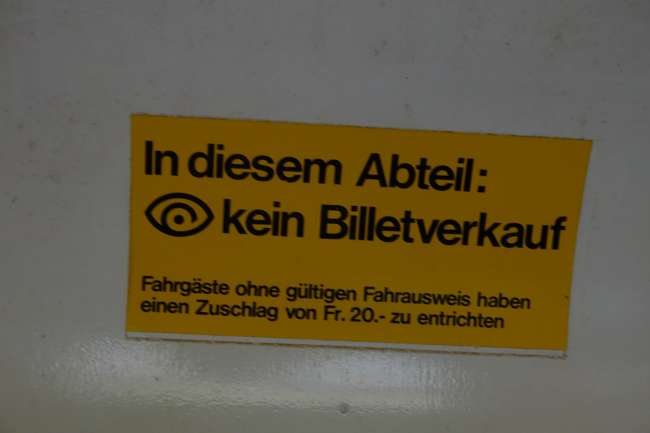
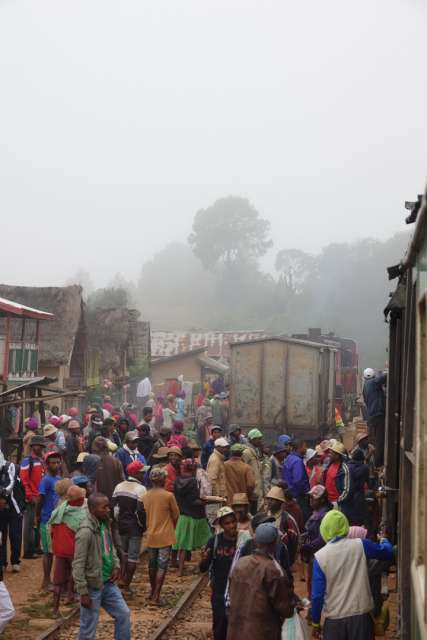
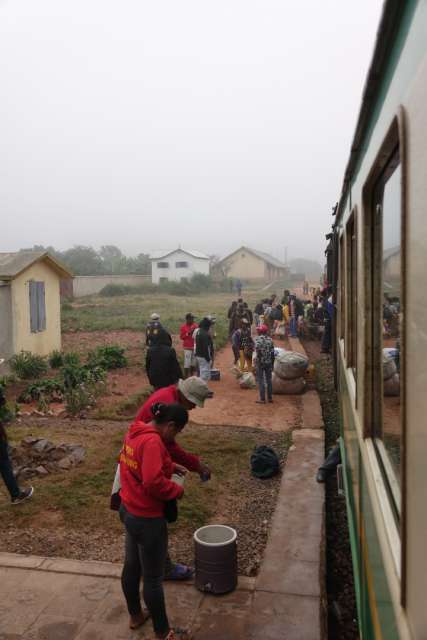
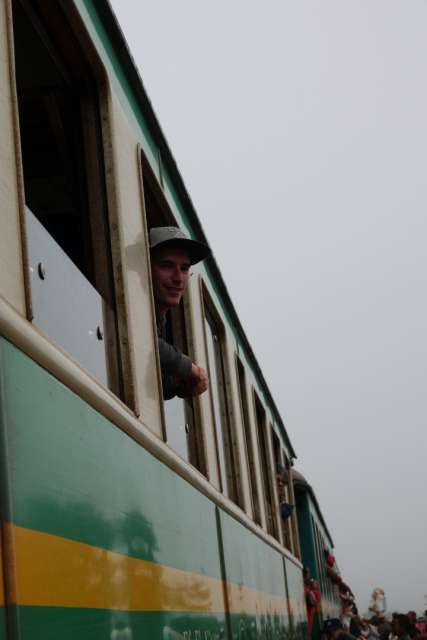
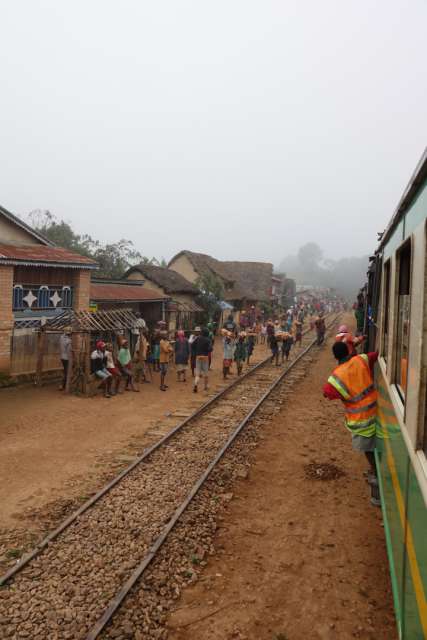
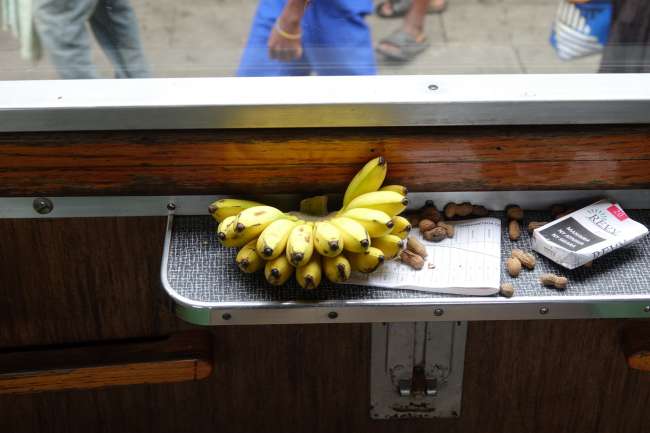
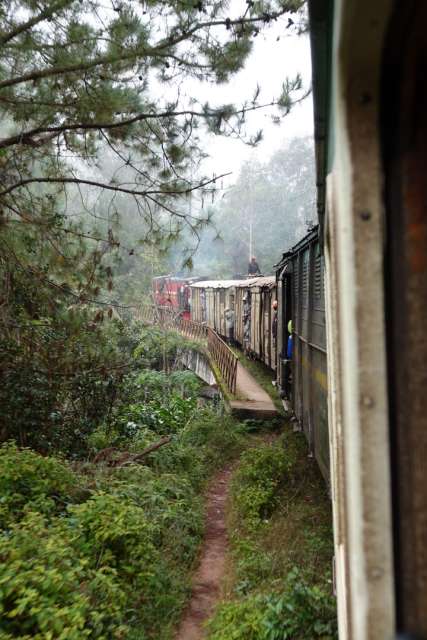
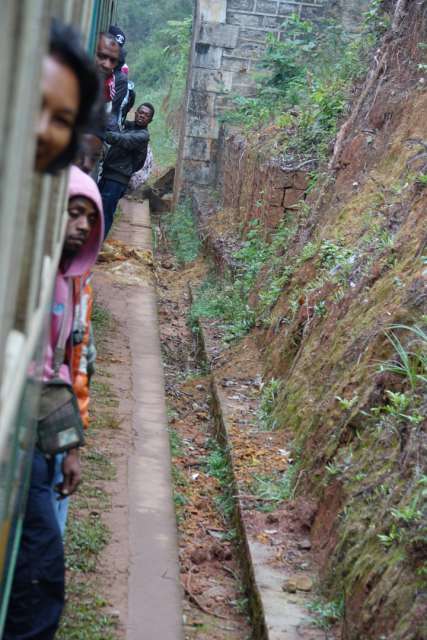
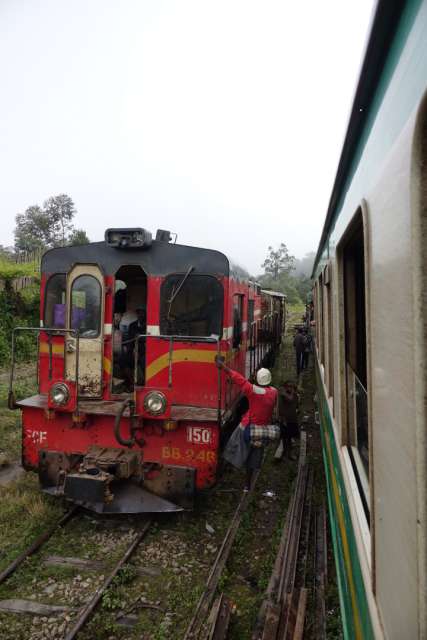
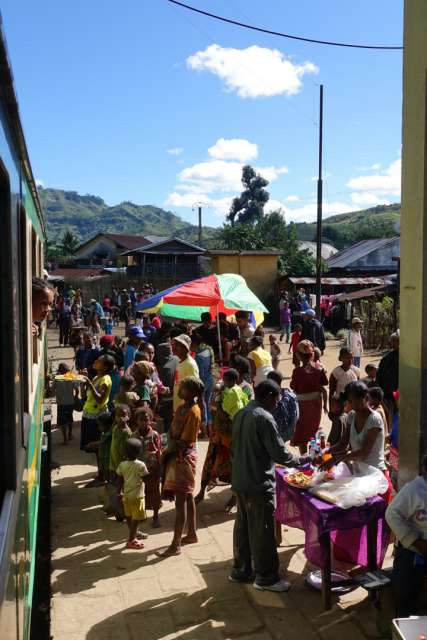
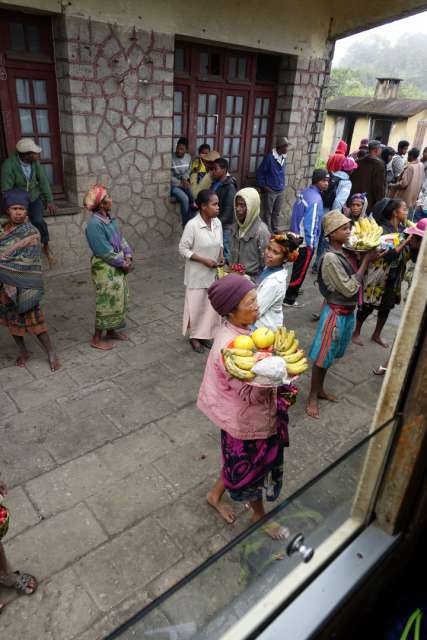
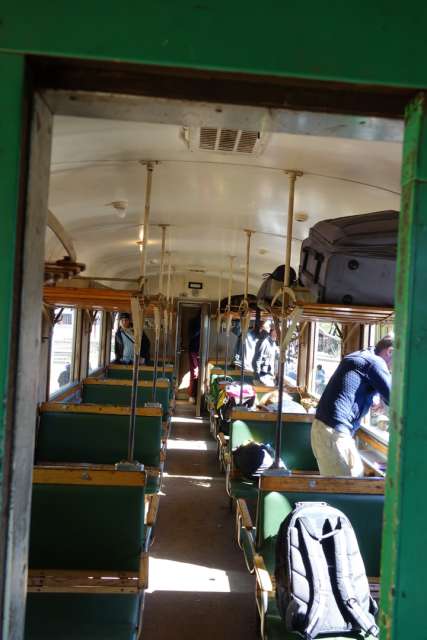
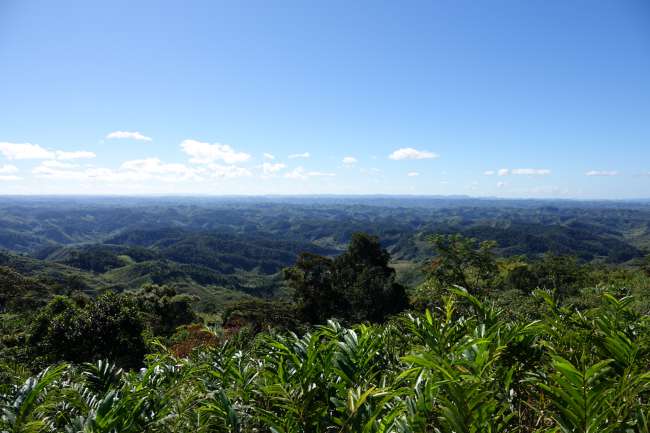
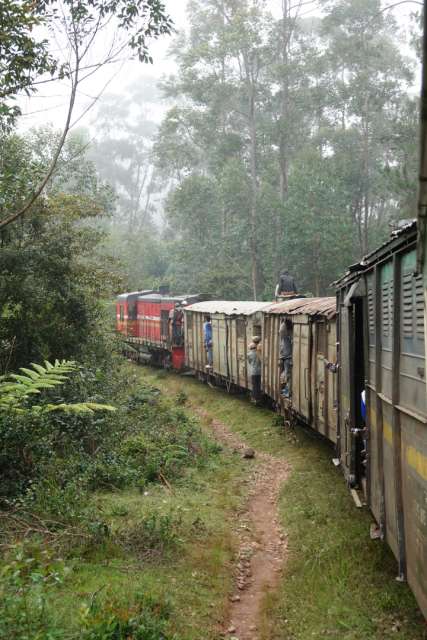
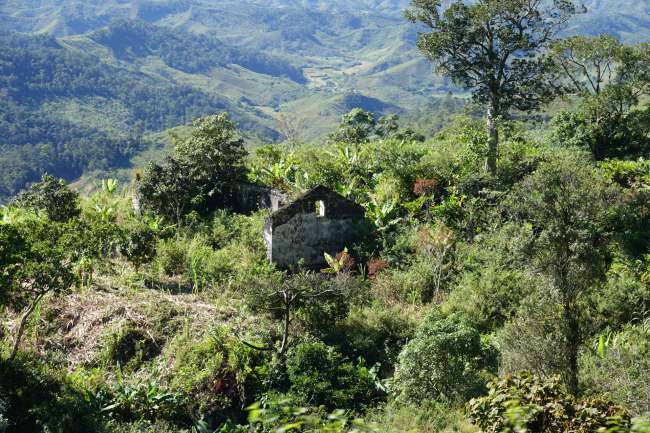
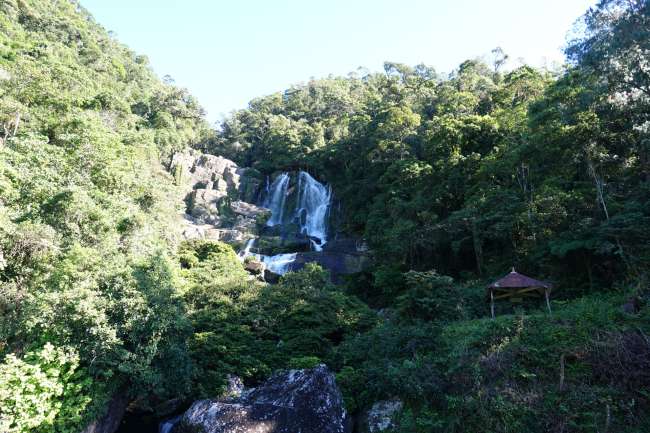
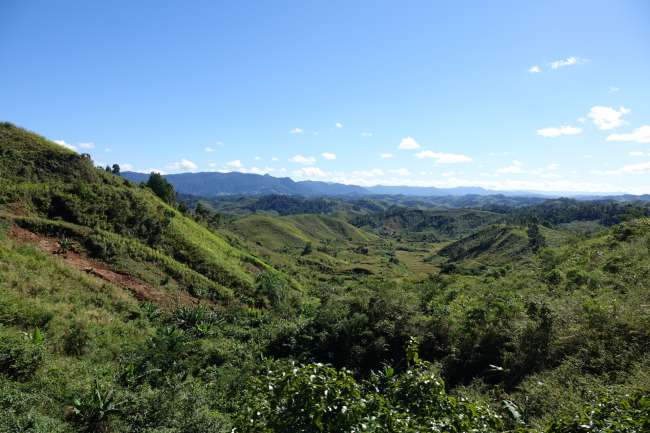
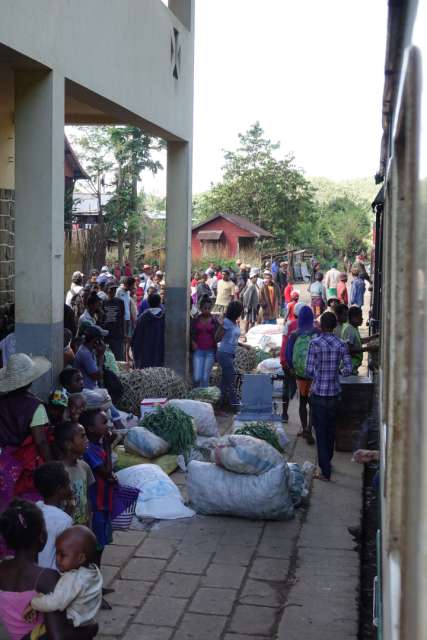
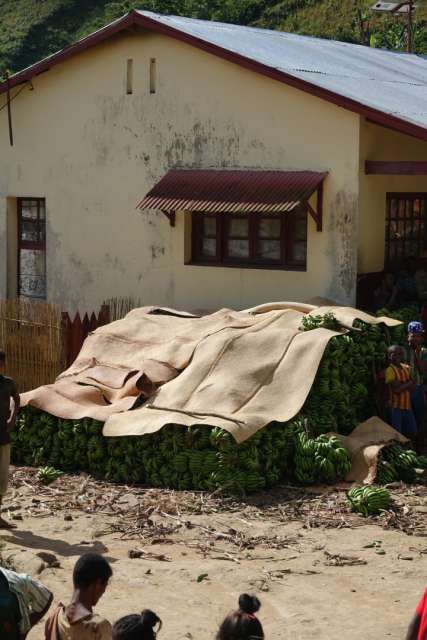
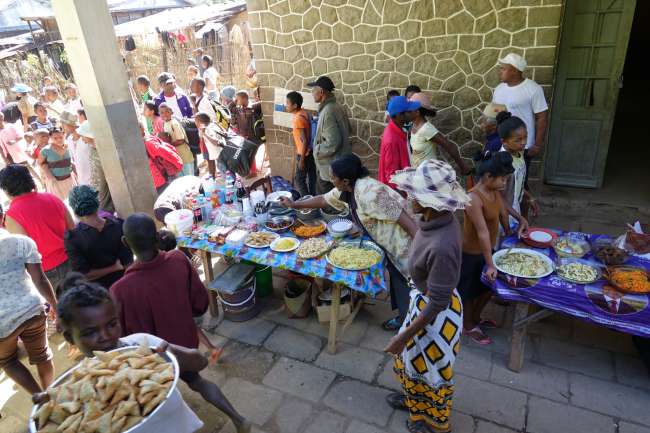
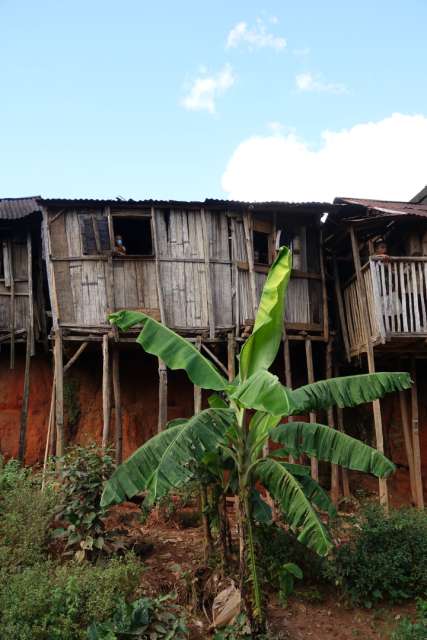
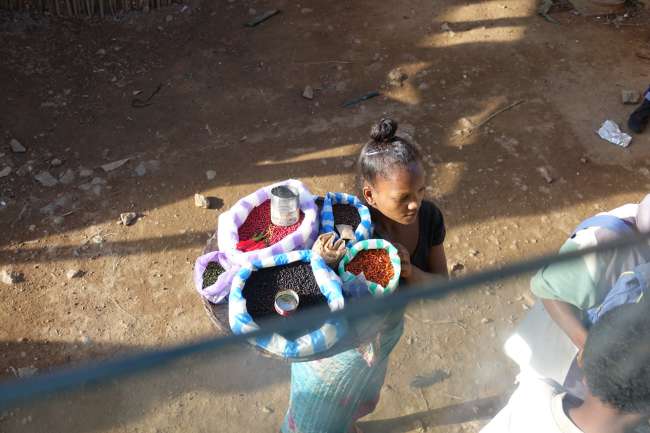
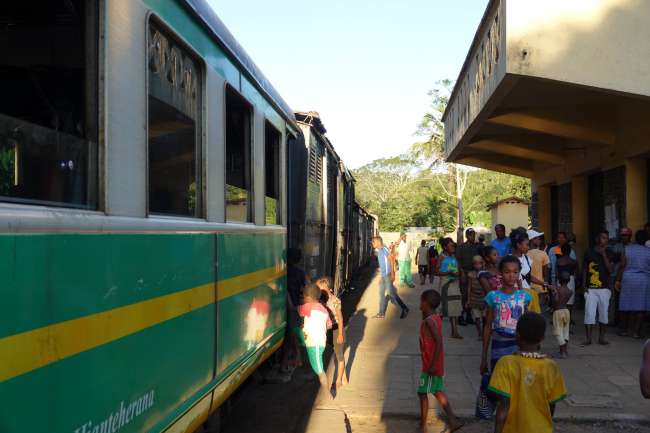
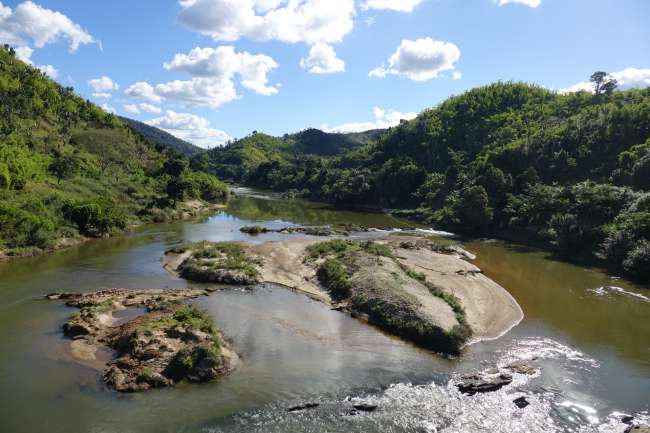
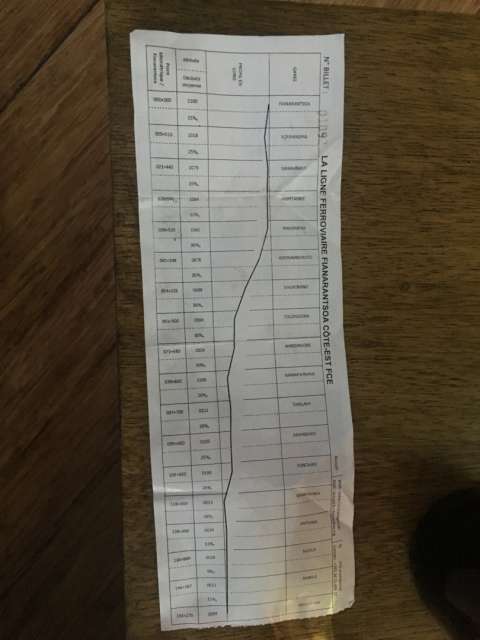
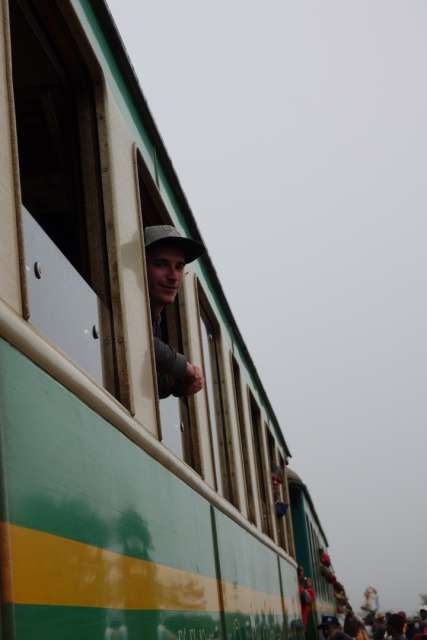
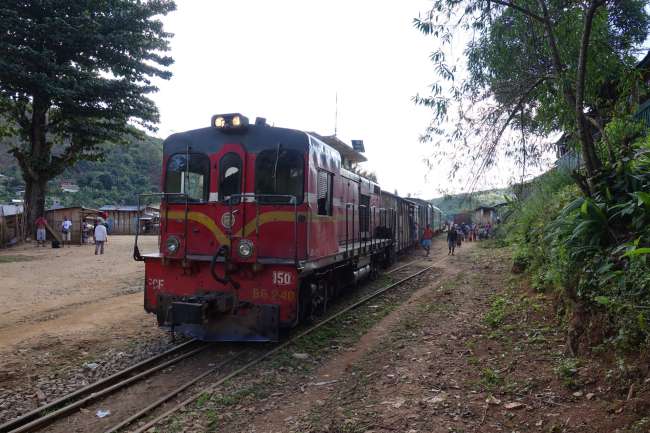
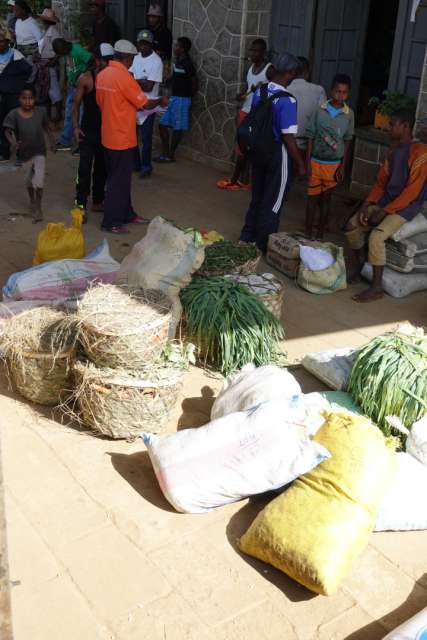
ຈອງຈົດຫມາຍຂ່າວ
Today, we had an interesting train ride on our program in the eastern part of the island. According to some sources, this is the only train that still operates regularly in Madagascar. It serves the route from Fianarantsoa to Manakara. Fianarantsoa is located on the high plateau, while Manakara is directly on the coast.
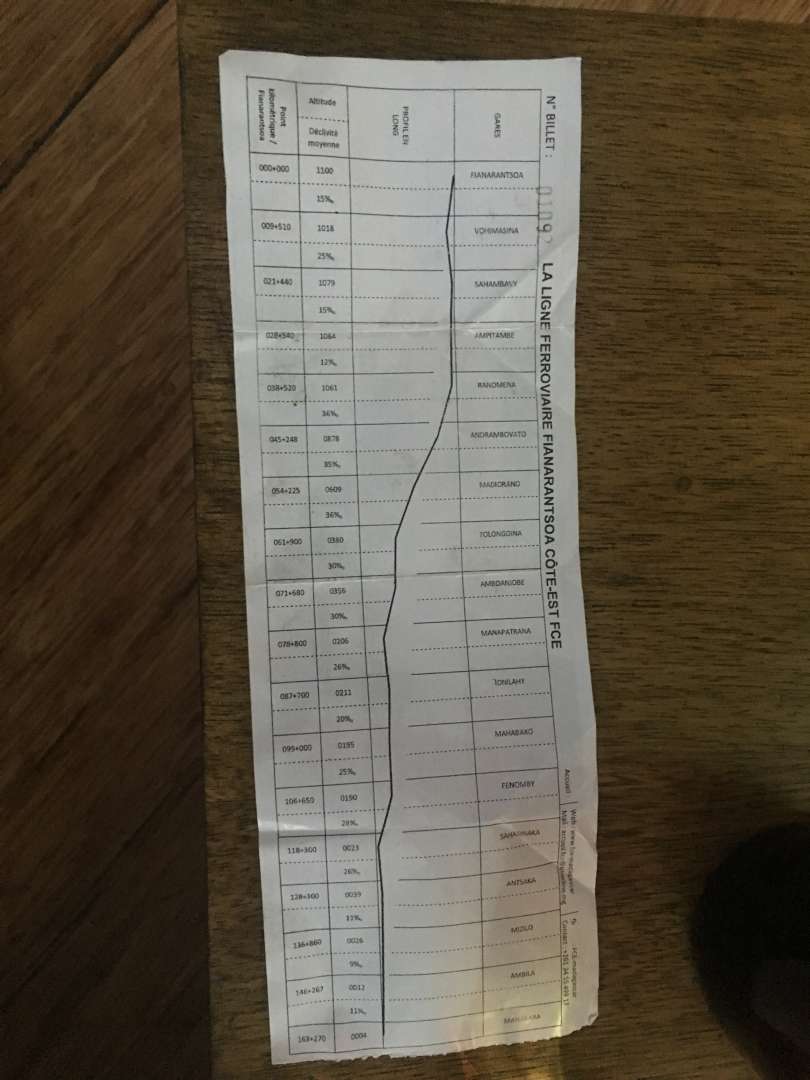
For certain villages inland, this train is the only connection to the outside world as there are no roads leading to these villages. The difficult part about this train journey is that you don't know exactly when the train will depart.

But today, according to our information, a train was supposed to depart and we didn't want to miss the opportunity.
So this morning, we went to the train station shortly after 6 am because the train was supposed to start its journey at 7 am.
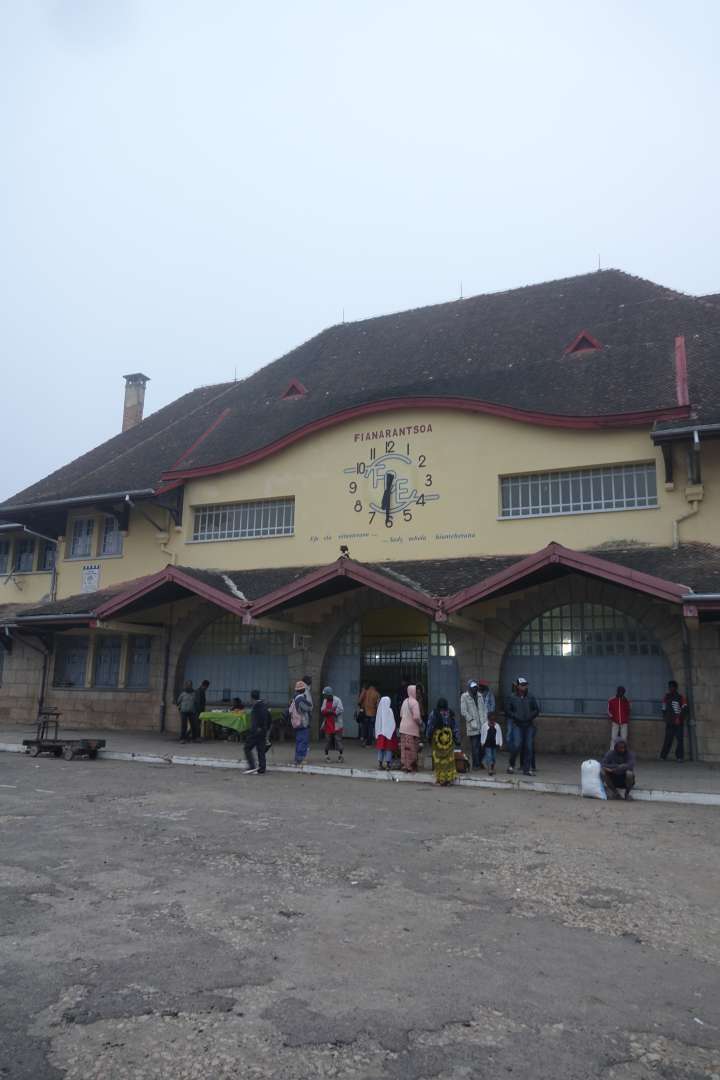

For the 163 km route, a travel time of 12 to 24 hours is indicated, depending on how well the train is moving forward, how many people are on board, how much cargo is being transported, and what the weather is like, etc.
And indeed, today a train is running. We bought a first-class ticket. (As a tourist, you don't even get a second-class ticket. We quickly understood why later.
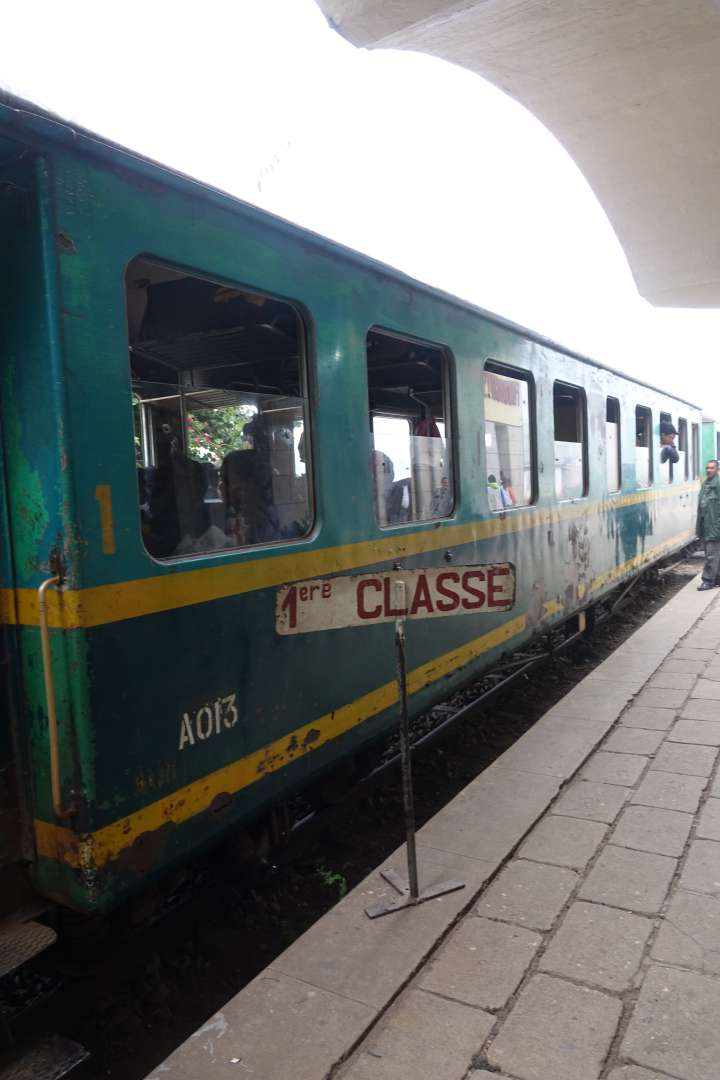
There was already a bustling activity on the platform. Many locals, loaded with heavy sacks, filling the freight cars, mixed with a few white tourists standing in the way with their cameras.

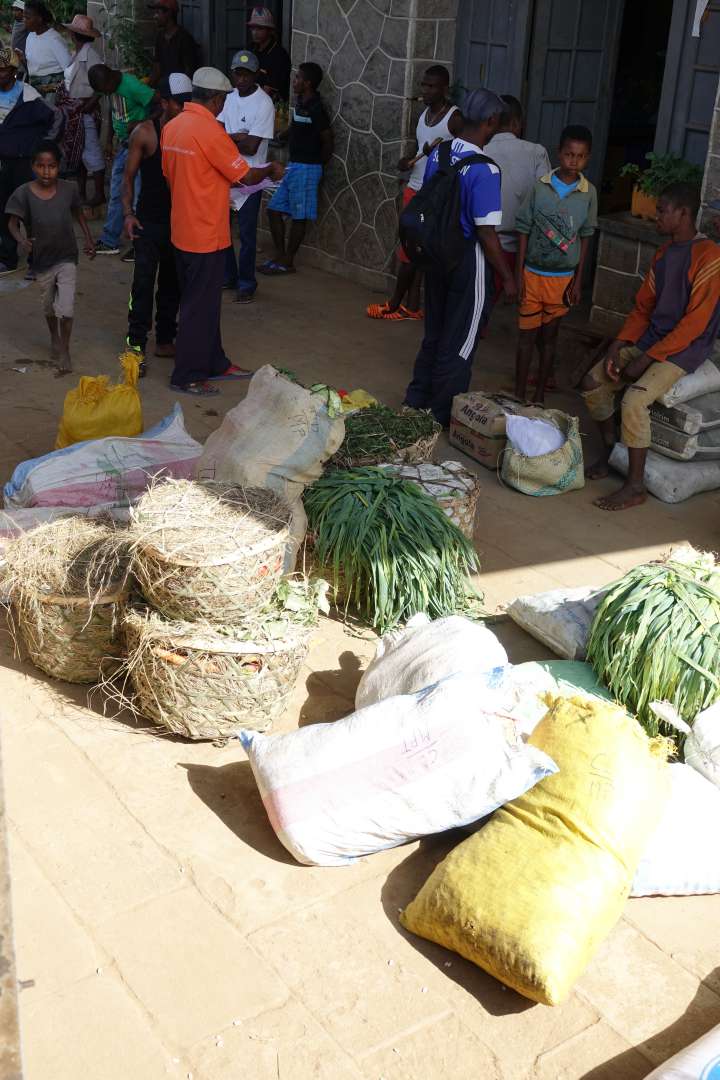
When boarding, we were reminded of Switzerland. The wagons of this train were retired wagons from the Swiss Federal Railways. Even the original stickers were still visible inside.
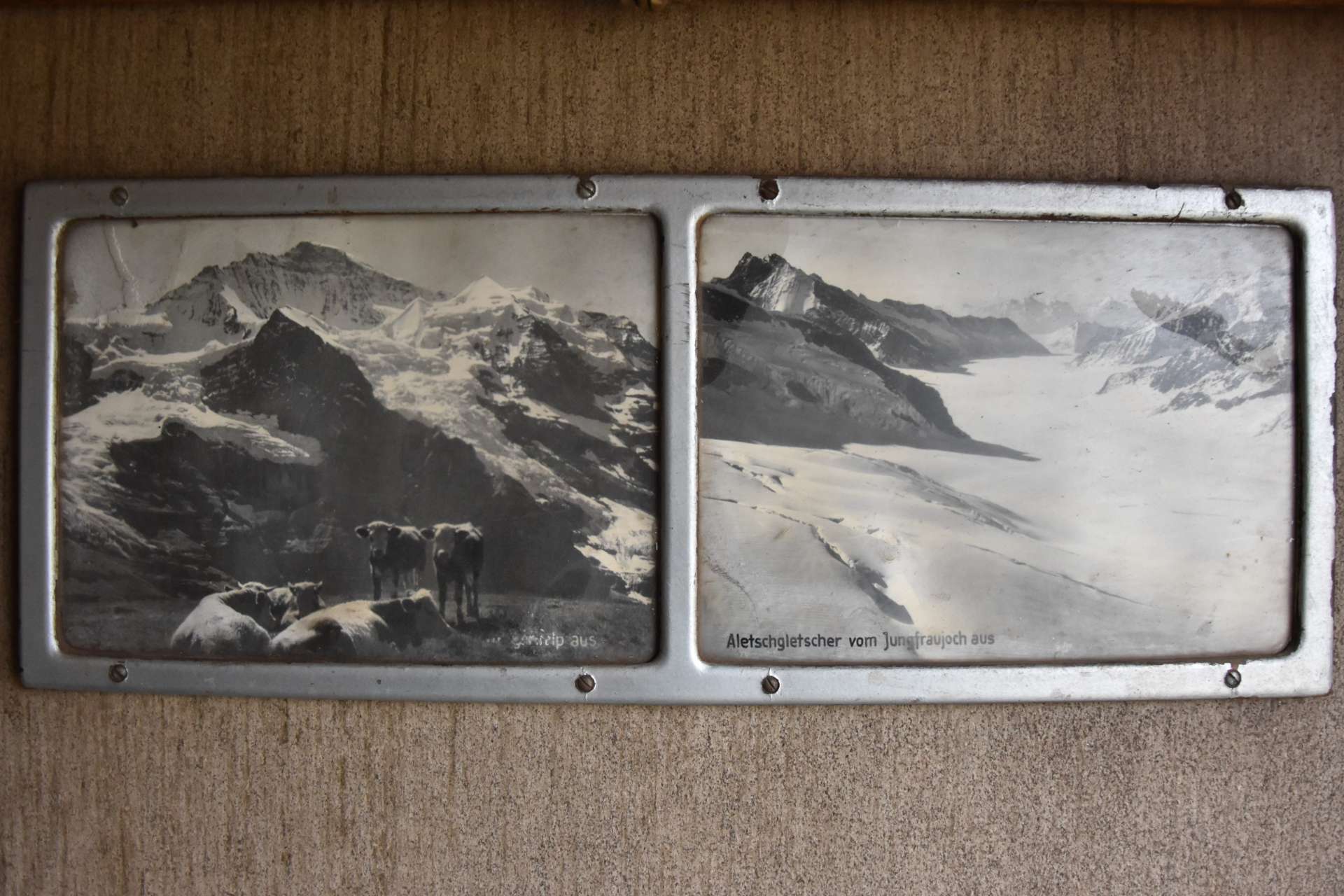


To our astonishment, the journey started on time at 7 am. So we took our seats and enjoyed the landscape passing by the window. We excitedly stuck our heads out of the window and enjoyed the breeze.
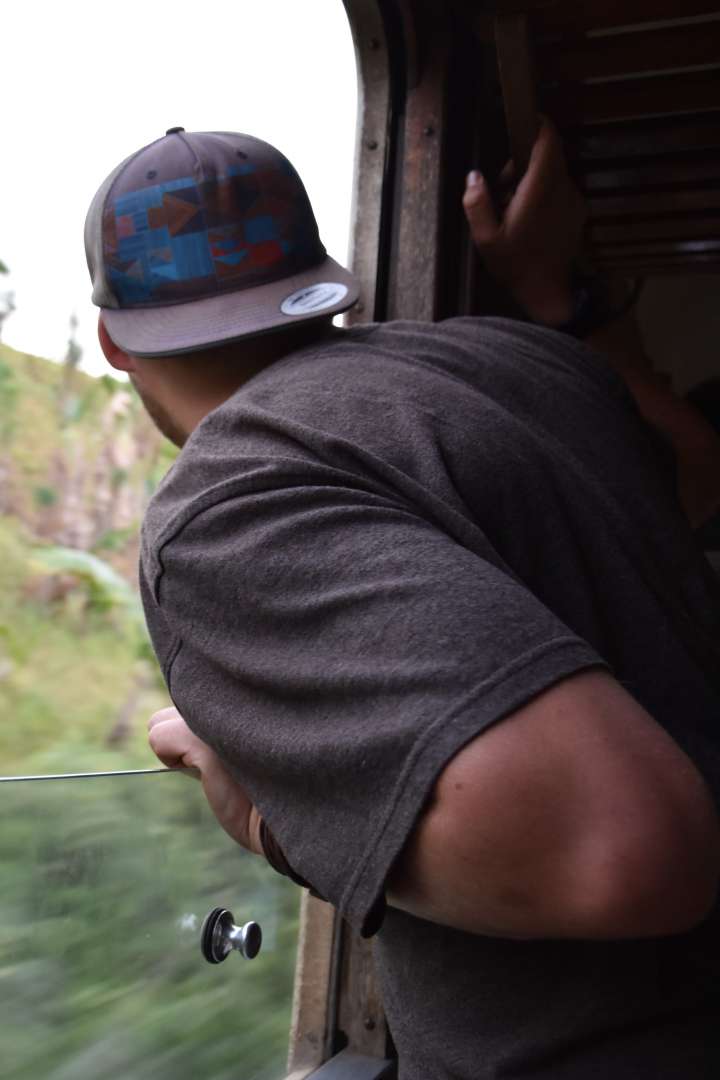
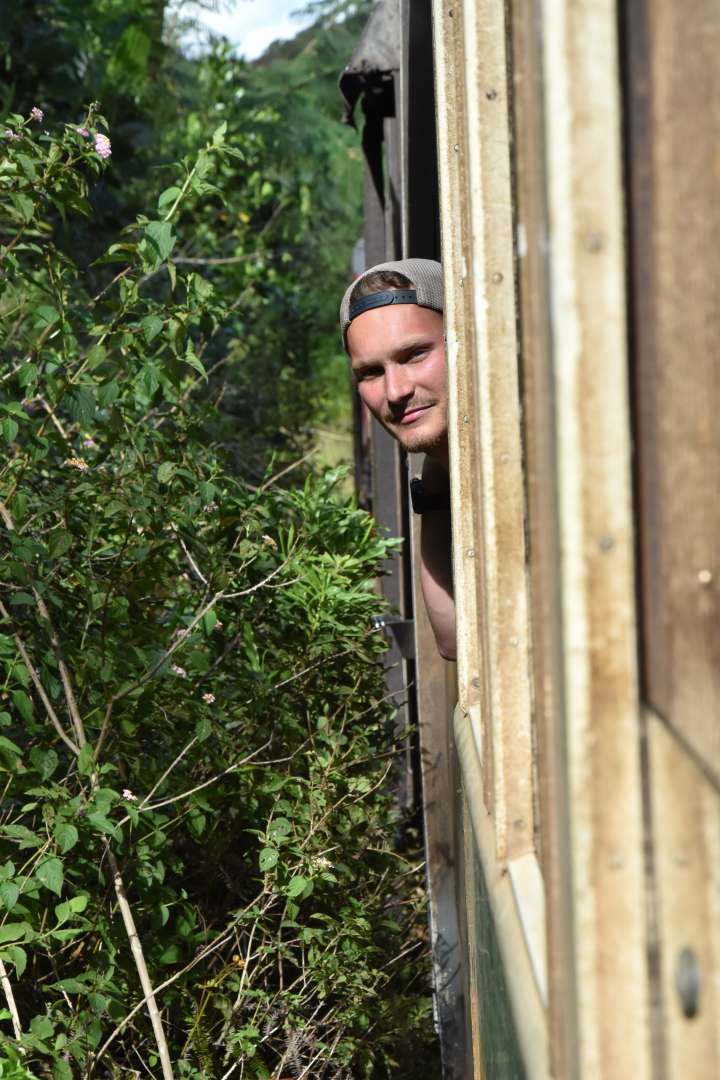
Some locals in second class didn't even have to stretch their heads out of the window because they were hanging outside the train since there was no more space inside.
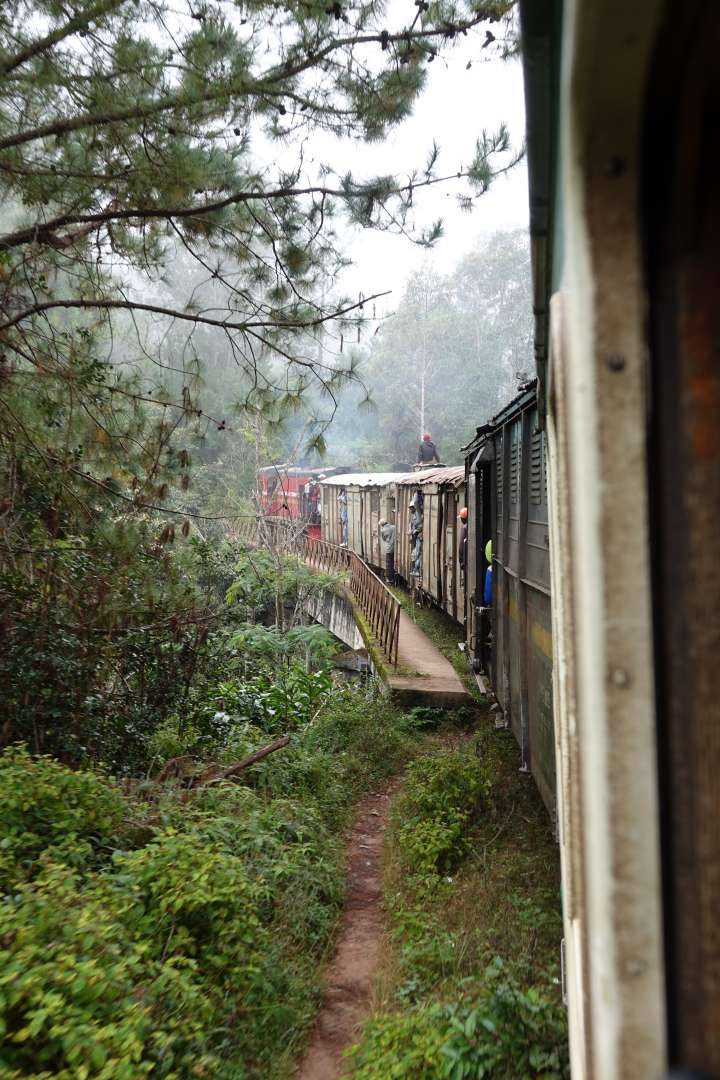

As the train wound its way through the landscape, it quickly became clear why the train is called TGV of Madagascar. It can't keep up with its French brother in terms of speed, but it still deserves its name. The abbreviation stands for "Train grand vibration" (Train with great vibration). As the old axles of the wagons run over the old rails, there were constant shocks and everything was shaking as if the wagons were about to tip over in the curves.

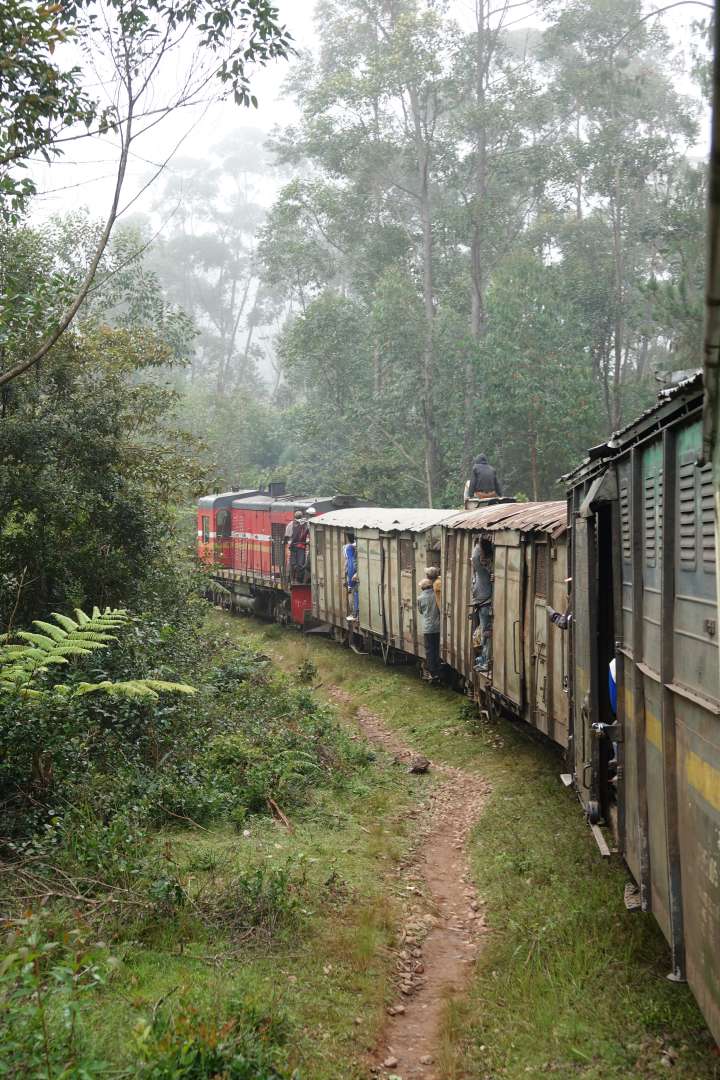
There was a huge crowd at the various train stations.
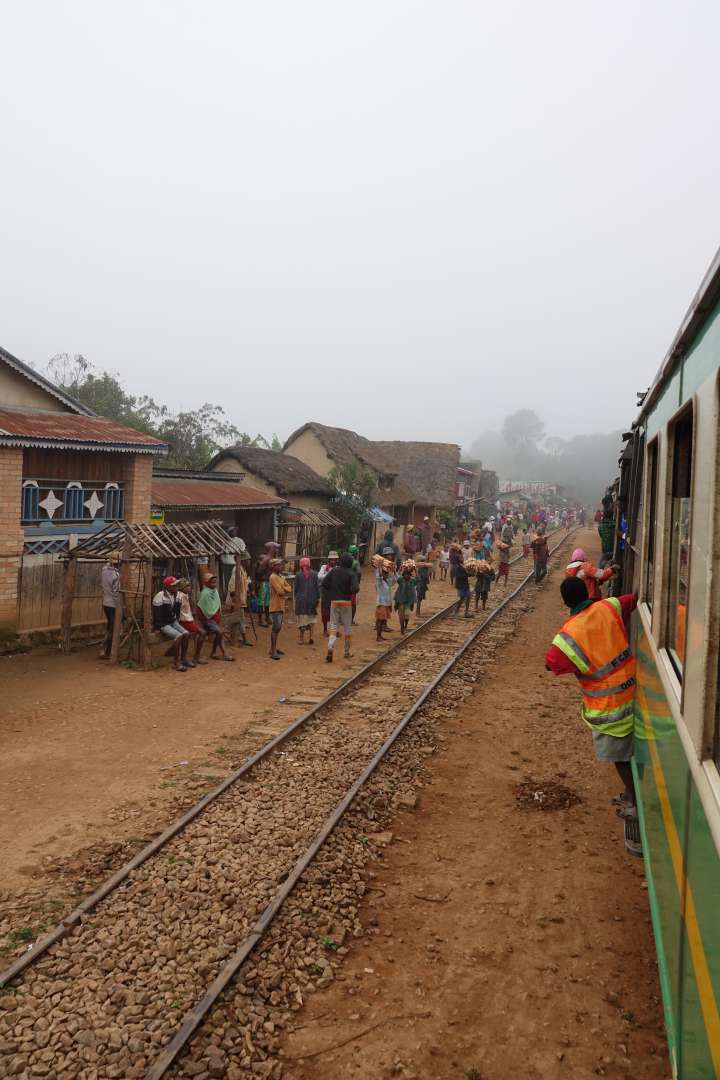

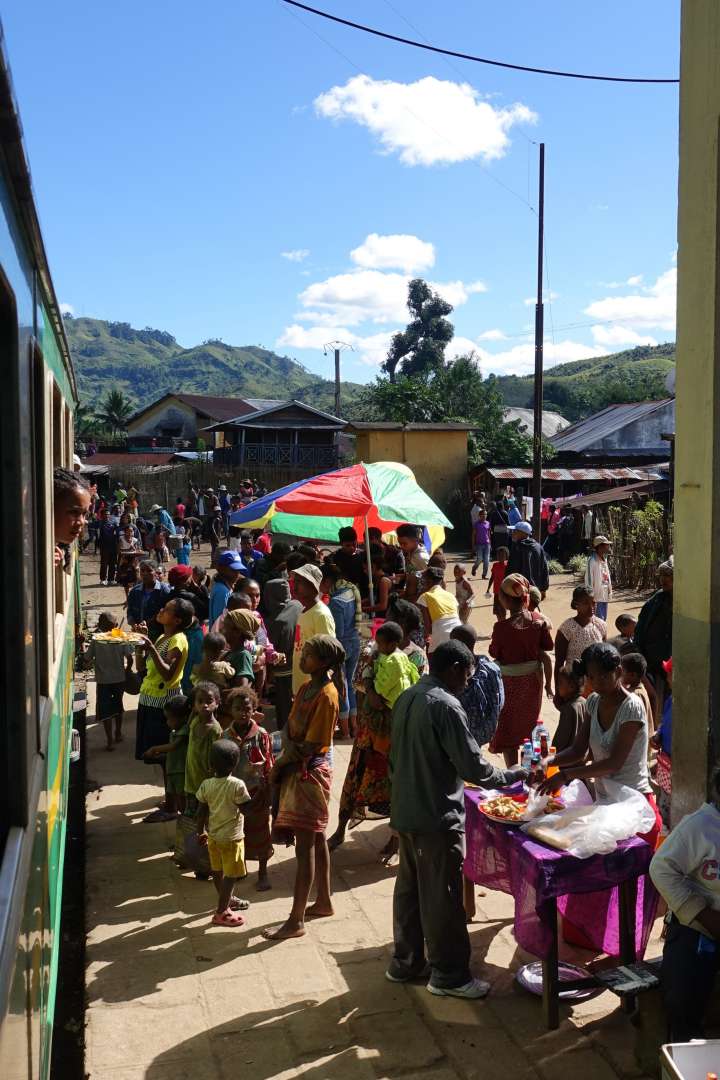

Old passengers getting off the train and picking up their goods from the freight cars, new passengers wanting to board the overcrowded train, and large amounts of goods ready for loading.

And many street vendors who wanted to sell all sorts of things, especially food and drinks. The dishes varied from station to station. One station had fruits for sale, another had fried dumplings and balls, and at yet another station, there were tables set up with various dishes.


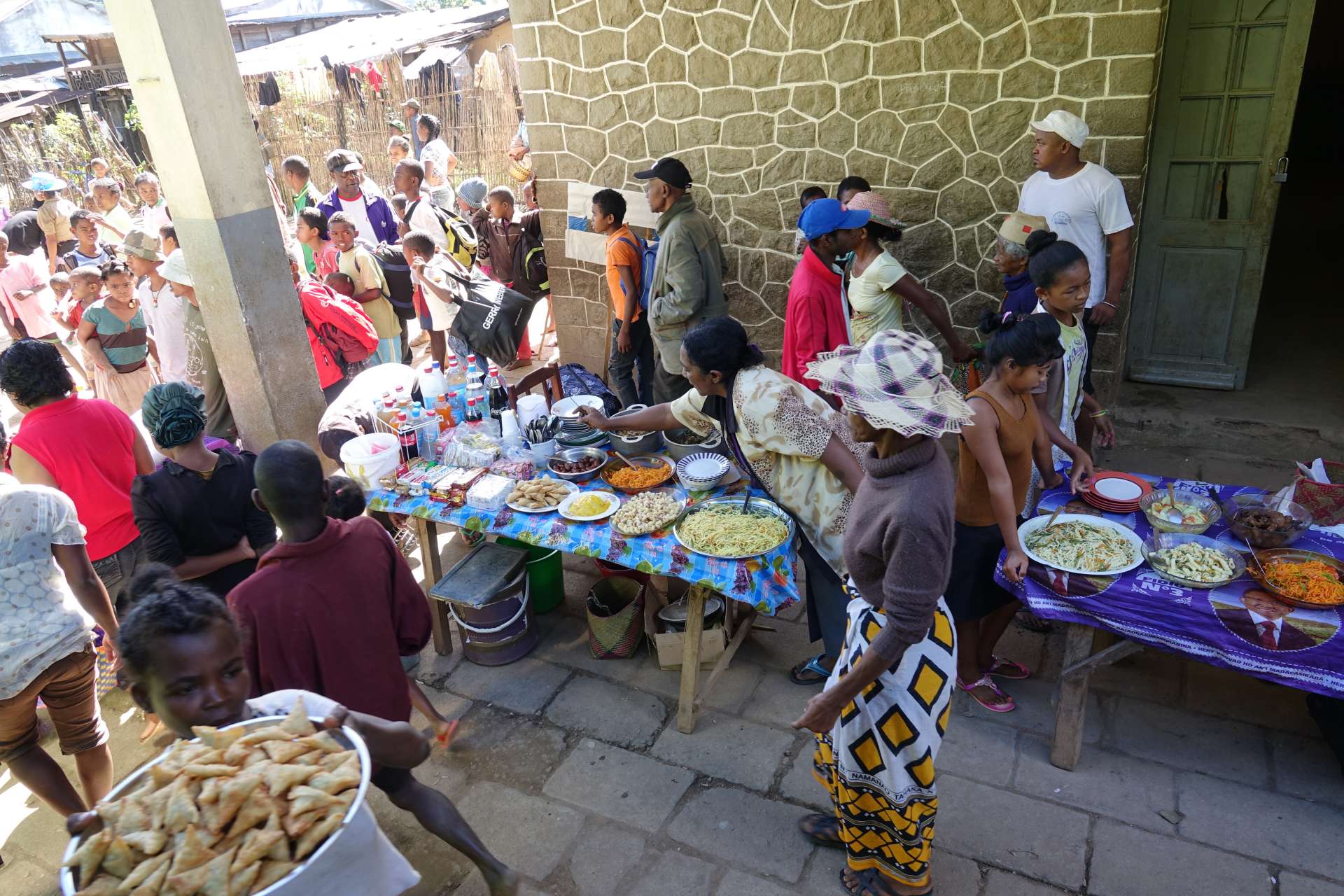
We couldn't resist trying almost everything. Everything tasted delicious.
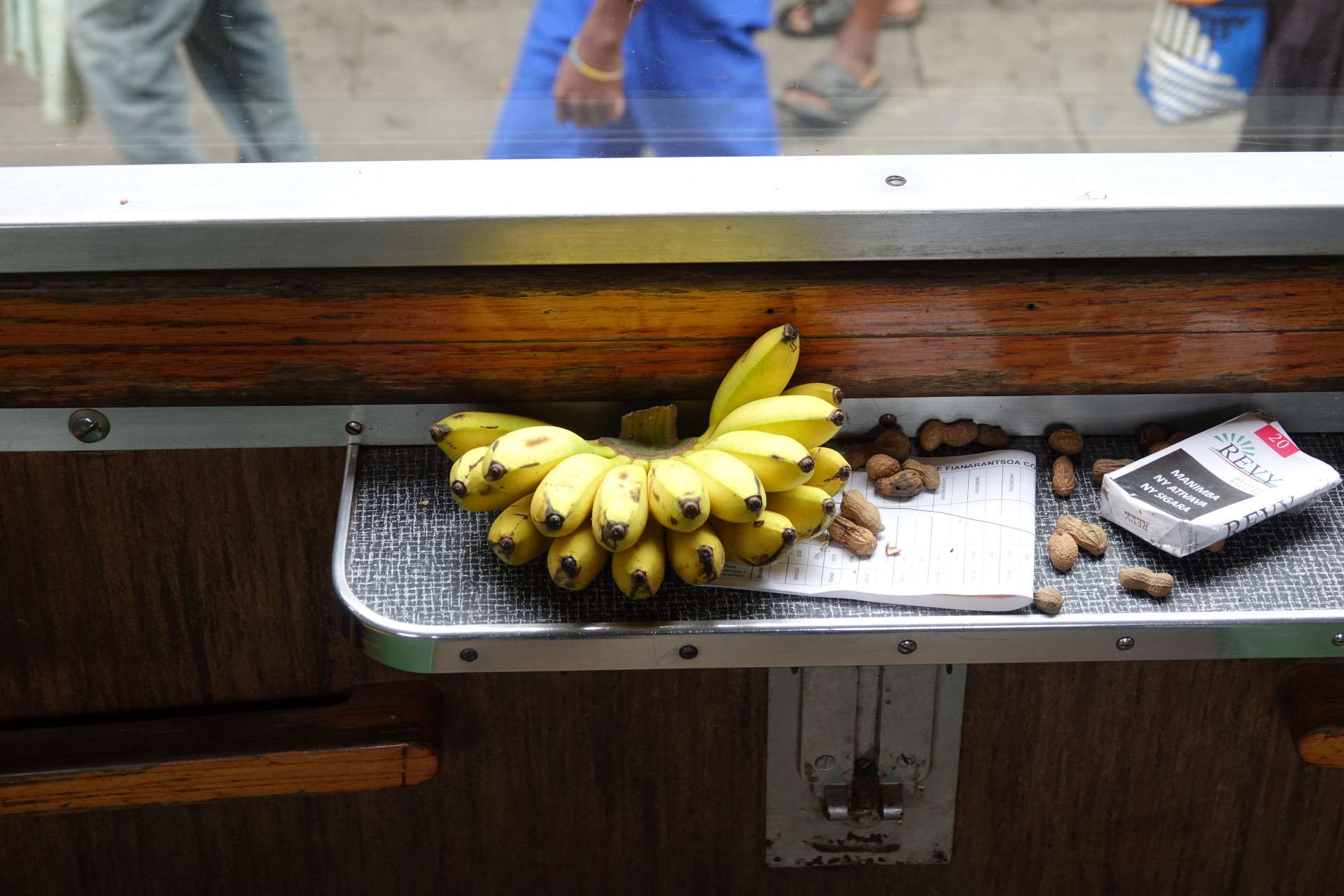
As we traveled through the ever-changing landscape,
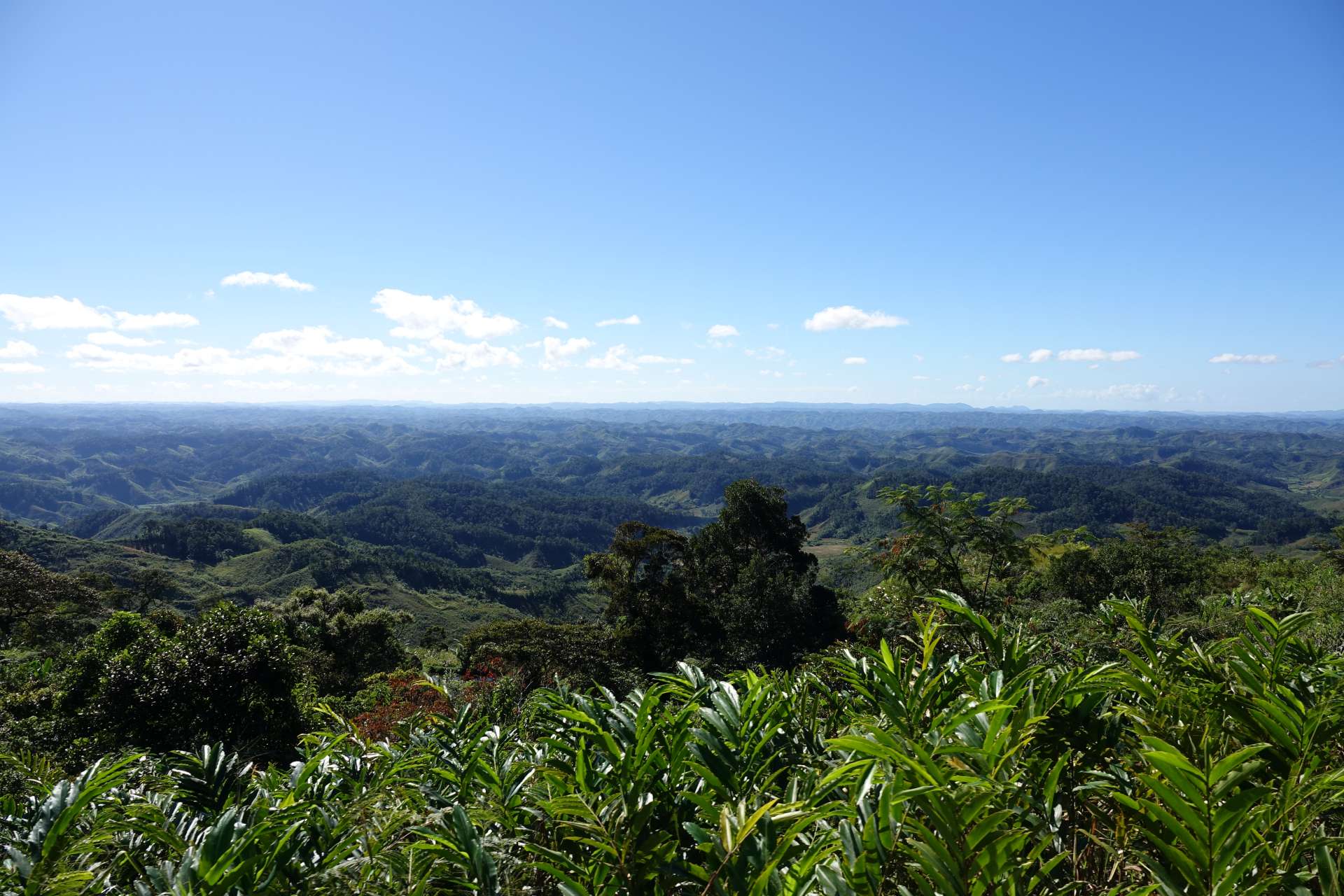



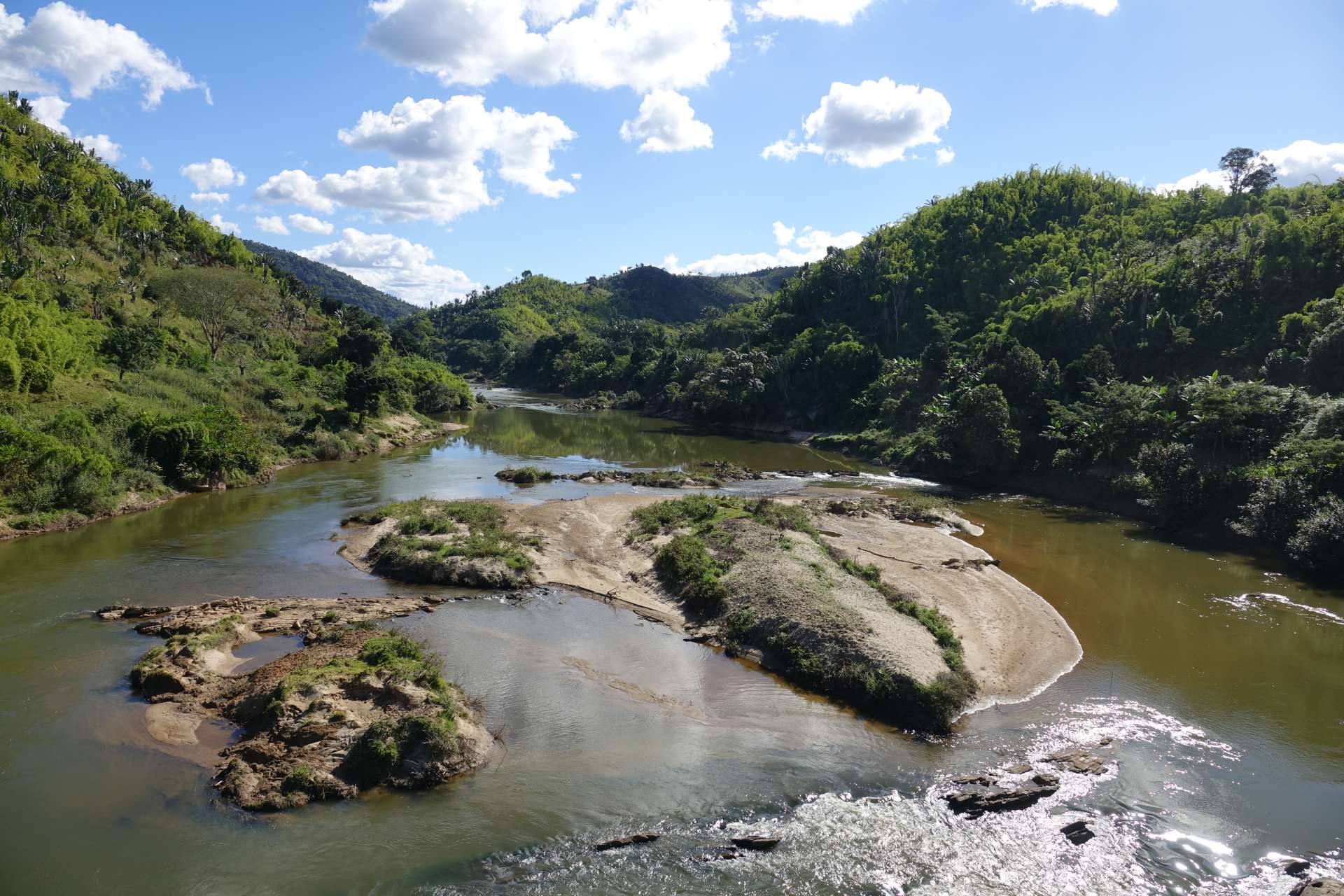

our train was sometimes extended or shortened at the train stations by adding or detaching a freight car. The whole process always took time because there was only one locomotive available.

The passengers used the time to stretch their legs, sit down, or have a meal.
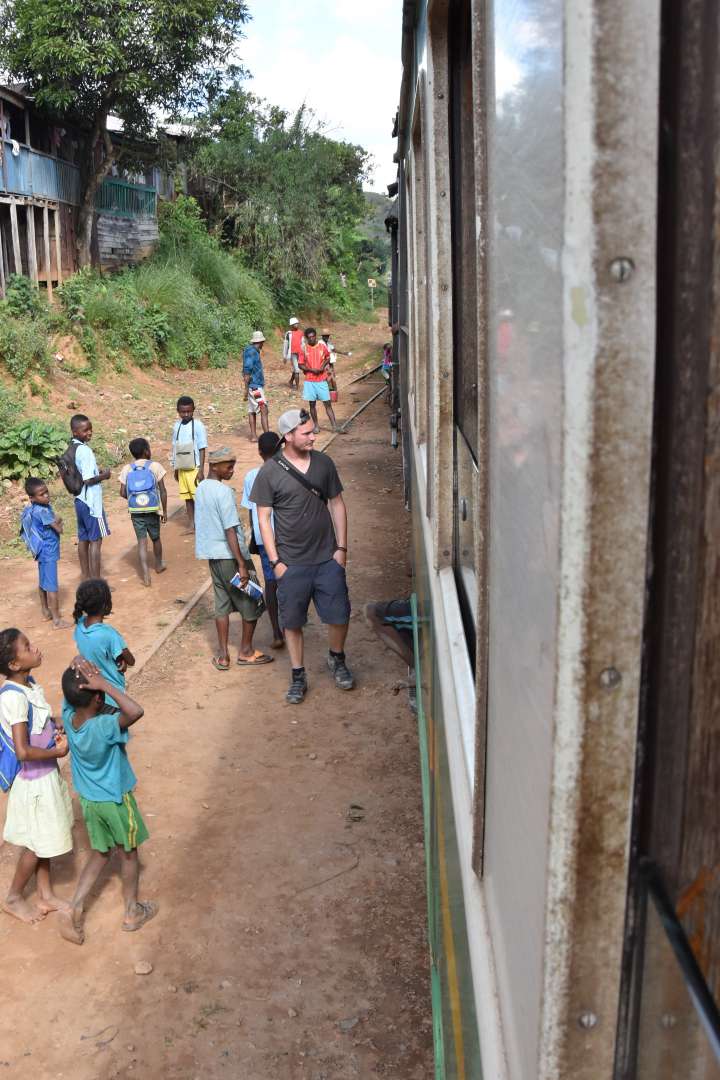


A group of children always stood in front of our window, wanting to be photographed or begging for sweets and empty plastic bottles.
Our train took 12 hours for the journey, and we arrived at the Manakara train station at 7 pm. The train emptied relatively quickly, and there was a huge crowd at one exit. Outside, a horde of taxi and rickshaw drivers were trying to outdo each other in shouting. We had to fight our way through the crowd to reach our guide, who was already waiting for us.
We then went directly to the nearby hotel by car, where we ended the day with a good dinner right on the beach.
ຈອງຈົດຫມາຍຂ່າວ
ຄໍາຕອບ
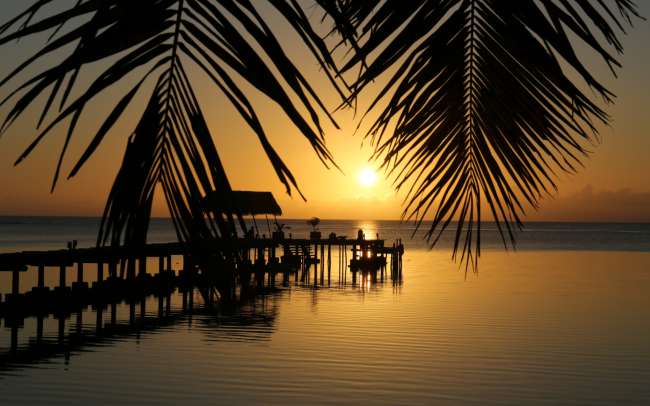
ລາຍງານການເດີນທາງ ມາດາກັສກາ
